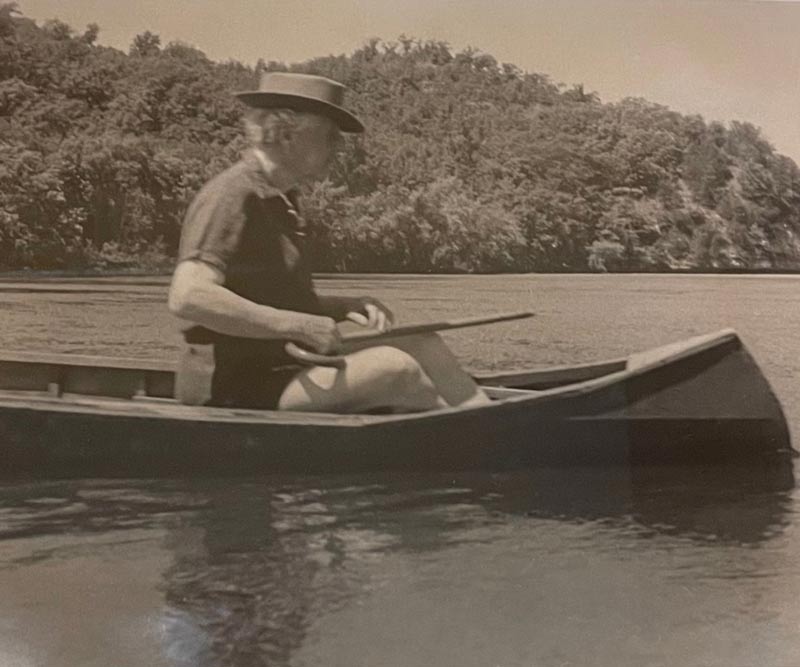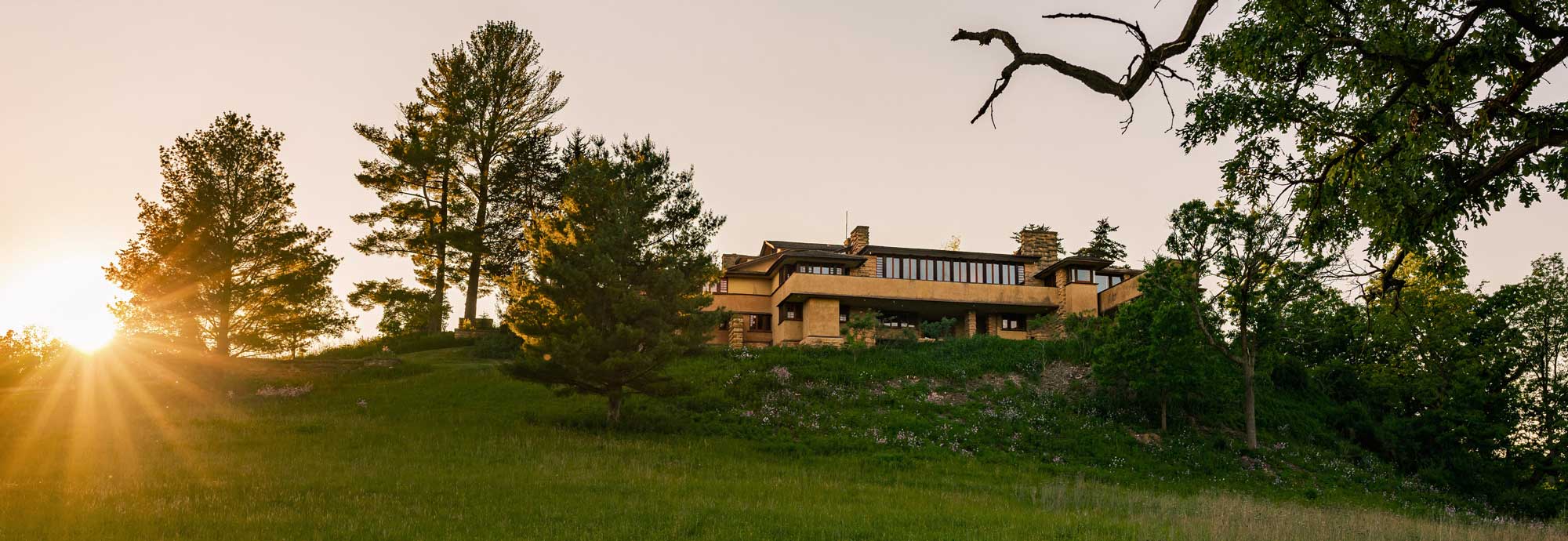Why I Love Wisconsin by Frank Lloyd Wright | Frank Lloyd Wright Trail | Wisconsin
Why
I Love Wisconsin
by Frank Lloyd Wright
I love Wisconsin because my staunch old Welsh grandfather with my gentle grandmother and their 10 children settled here nearby. I see the site of their homestead and those of their offspring as I write. Offspring myself, my home and workshop are planted on the ground grandfather and his sons broke before the Indians had entirely gone away.
This Wisconsin valley with the spring-water stream winding down as its center line has been looked forward to or back upon by me and mine from all over the world, as home.
And I come back from the distant, strange, and beautiful places that I used to read about when I was a boy, and wonder about; yes, every time I come back here it is with the feeling there is nothing anywhere better than this is.
More dramatic elsewhere, perhaps more strange, more thrilling, more grand, too, but nothing that picks you up in its arms and so gently, almost lovingly, cradles you as do these southwestern Wisconsin hills.
These ranges of low hills that make these fertile valleys of southwestern Wisconsin by leading down to the great sandy plain that was once the bed of a mightier Wisconsin River than any of us have ever seen.
I doubt if that vast river were more beautiful then, however, than this wide, slow-winding, curving stream in the broad sand bed, where gleaming sandbars make curved beaches and shaded shores to be overhung by masses of great greenery. Well, it is not quite like any of the more important rivers of the world. It is more what specialists in scenery would call “picturesque.” It is, however, unique. So “human” is this countryside in scale and feeling. “Pastoral” beauty, I believe, the poets call it.
And the Wisconsin red barn! Wisconsin barns are mostly all red, and everywhere make a feature of the landscape missing in most states. A farmstead here is somehow warmed and given life by the red of the barns as they stand about me over the green hills and among the yellow fields with the sun on them.
And then Wisconsin is a dairy state. That means herds of pure Holsteins or Guernseys, or what have you, occupying the best ground anywhere around, making pictures that go with the one made by the red barn. Wisconsin, fond of passing laws, should pass another law compelling every farmer to paint his barn red. Another that will compel him to pasture his cows by the highway and his pigs back behind the barn.
I’ve found out, too, that we are known abroad as a “progressive” state. They know about Ross and Commons, Reinsh and Glenn Frank: names that help make Wisconsin scientific, agrarian and political to the outside world. The name of La Follette distinguishes our political history, I find, wherever I go. And I, too, always speak of Wisconsin as “progressive” when I talk about her away from home. Not understanding very well just what the word means, I suppose, any more than other Wisconsin people, in general, do. But that is what Wisconsin would like to be anyway, and what she means to be. Which is most important after all.
I love Wisconsin because of her Meiklejohn experiment at the university, whether it succeeded or not. And because of every sincere forward-looking experiment the state itself has ever made; because of her courage; her love of independence; her true belief in individuality as essential to immortality. I love her because she will spend her money to grubstake prospectors for future benefits to her posterity, even though some of her too, too substantial citizens call her foolish for that—and I love her because she has not so very many snobs.

Frank Lloyd Wright in a canoe along the Wisconsin River
(Photo: Pedro Guerrero)
I love her because she has so few highbrows. They are men educated far beyond their capacity, so my old master Louis Sullivan used to say. And I love her because most of her was for the temperance of the Declaration of Independence instead of for the prohibition that violates temperance.
Without taking myself too seriously, I hope I love her because I, too, am by birth and nature a Wisconsin radical. Radical is a fine word, meaning “roots.” Being radical I must strike root somewhere. Wisconsin is my somewhere. I feel my roots in these hillsides as I know those of the oak that have struck in here beside me.
That oak and I understand each other. Wisconsin soil has put sap into my veins. Why, I should love her as I loved my mother, my old grandmother, and as I love my work.
This article was first published in Industrial Wisconsin, April 1930 and is abridged here; Frank Lloyd Wright Collected Writings: 1931-39, Vol. 3. Edited by Bruce Brooks; The Frank Lloyd Wright Foundation Archives (The Museum of Modern Art | Avery Architectural & Fine Arts Library, Columbia University, New York). All rights reserved.

